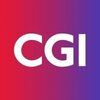Filter interviews by
Cyient Senior Software Engineer Interview Questions, Process, and Tips
Cyient Senior Software Engineer Interview Experiences
5 interviews found

(2 Questions)
- Q1. It was pure technical on product.
- Q2. Reason for shifting from current org
Interview Preparation Tips
Senior Software Engineer Interview Questions & Answers
posted on 19 Feb 2024
I applied via Approached by Company and was interviewed before Feb 2023. There was 1 interview round.
(1 Question)
- Q1. I have experienced in front-end developer 1.what are the challenges you faced in your project. 2.rela time example of subject and behaviour subject 3.how you call the multiple API using promises 4. disadva...
- Ans.
Answering questions related to front-end development challenges and techniques.
Challenges faced in front-end development projects include browser compatibility issues, performance optimization, and responsive design implementation.
Real-time examples of Subject and BehaviorSubject in Angular can be demonstrated by creating a chat application where Subject is used for broadcasting messages and BehaviorSubject is used for...
Skills evaluated in this interview
I applied via Recruitment Consulltant and was interviewed before Aug 2022. There were 4 interview rounds.

Dont remember but it was easy...just few out of scope technology questions which any way not comming for specific profile
(1 Question)
- Q1. Basic to advanced Java Questions like beans? opps? multi threading? etc
(1 Question)
- Q1. HR was clueless about the profile. But here is the tip. you can tell them at last moment you want more salary and bcz no body wants to continue and people are leaving there are high chances of getting more...
Interview Preparation Tips
What people are saying about Cyient






(1 Question)
- Q1. Got extreme Technical knowledge
Interview Preparation Tips
Cyient interview questions for designations
I applied via Referral and was interviewed before Jan 2021. There were 3 interview rounds.
(5 Questions)
- Q1. Core Java Related questions
- Q2. Difference between abstract class and interface
- Ans.
Abstract class can have implementation while interface only has method signatures.
Abstract class can have constructors while interface cannot.
A class can implement multiple interfaces but can only inherit from one abstract class.
Abstract class can have non-public members while interface only has public members.
Abstract class is used for creating a base class while interface is used for implementing a contract.
Example o...
- Q3. Spring auto-wiring and DI
- Q4. Transaction Management in Hibernate/JPA
- Ans.
Transaction management in Hibernate/JPA
Hibernate/JPA provides transaction management support through the EntityManager API
Transactions can be managed programmatically or declaratively using annotations
The @Transactional annotation can be used to mark a method as transactional
Hibernate/JPA supports different transaction isolation levels and propagation behaviors
Rollback can be triggered programmatically or automatically
- Q5. Unit testing, CI/CD, Git
(2 Questions)
- Q1. Simple questions related to SDLC
- Q2. Advantages of Agile over waterfall model
- Ans.
Agile allows for flexibility, collaboration, and faster delivery compared to the rigid and sequential waterfall model.
Agile emphasizes on continuous feedback and improvement
Agile allows for changes to be made throughout the development process
Agile promotes collaboration and communication among team members
Agile enables faster delivery of working software
Waterfall model is rigid and sequential, making it difficult to m...
(4 Questions)
- Q1. What are your salary expectations?
- Q2. What is your family background?
- Q3. Why should we hire you?
- Q4. Why are you looking for a change?
Interview Preparation Tips
Skills evaluated in this interview
Interview questions from similar companies

I applied via Naukri.com and was interviewed in Apr 2021. There were 3 interview rounds.
Interview Questionnaire
1 Question
- Q1. Asked questions related to core java ,SQL and Process related questions
Interview Preparation Tips

I appeared for an interview before Dec 2020.
(5 Questions)
Round duration - 60 Minutes
Round difficulty - Medium
This round focused more on the Operating Systems part followed by some questions from Microservices Architecture.
- Q1. What is a bootstrap program in an operating system?
- Ans.
Bootstrap program is the initial code that runs when a computer is powered on, loading the operating system into memory.
Bootstrap program is stored in ROM or firmware.
It initializes the system hardware and loads the operating system kernel into memory.
Examples include BIOS in PCs and UEFI in modern systems.
- Q2. What is memory protection in operating systems?
- Ans.
Memory protection in operating systems is a feature that prevents a process from accessing memory that has not been allocated to it.
Memory protection helps prevent one process from interfering with the memory of another process.
It ensures that each process can only access memory that has been allocated to it.
Examples of memory protection mechanisms include segmentation and paging.
Segmentation divides memory into segmen...
- Q3. What are the four necessary and sufficient conditions that lead to a deadlock?
- Ans.
Four necessary and sufficient conditions for deadlock
Mutual exclusion: Resources cannot be shared between processes. Example: Process A holding Resource 1 and waiting for Resource 2, while Process B holding Resource 2 and waiting for Resource 1.
Hold and wait: Processes hold resources while waiting for others. Example: Process A holding Resource 1 and waiting for Resource 2, while Process B holding Resource 2 and waitin...
- Q4. What are the fundamental characteristics of a Microservices design?
- Ans.
Microservices design is characterized by modularity, independence, scalability, and resilience.
Modularity: Microservices are designed as independent modules that can be developed, deployed, and scaled separately.
Independence: Each microservice operates independently and communicates with other services through APIs.
Scalability: Microservices allow for scaling specific components of an application based on demand.
Resili...
- Q5. What are the different strategies for deploying microservices?
- Ans.
Different strategies for deploying microservices include blue-green deployment, canary deployment, rolling deployment, and feature flagging.
Blue-green deployment involves running two identical production environments, with one serving as the active environment while the other is on standby. Traffic is switched from one environment to the other once the new version is deemed stable.
Canary deployment gradually rolls out ...
(6 Questions)
Round duration - 60 Minutes
Round difficulty - Medium
This round was preety much mixed and contained questions from DBMS, Java and more importantly Spring Boot.
- Q1. Why is normalization needed in a database?
- Ans.
Normalization is needed in a database to reduce data redundancy, improve data integrity, and optimize database performance.
Eliminates data redundancy by breaking down data into smaller tables
Reduces update anomalies and inconsistencies in data
Improves data integrity by enforcing relationships between tables
Optimizes database performance by reducing storage space and improving query efficiency
- Q2. What are views in SQL?
- Ans.
Views in SQL are virtual tables that are generated based on the result set of a SELECT query.
Views are not stored physically in the database, but are dynamically generated when queried.
They can be used to simplify complex queries by encapsulating logic and joining multiple tables.
Views can also be used to restrict access to certain columns or rows of a table.
Example: CREATE VIEW vw_employee AS SELECT emp_id, emp_name F
- Q3. What is dependency injection?
- Ans.
Dependency injection is a design pattern where components are given their dependencies rather than creating them internally.
Allows for easier testing by providing mock dependencies
Promotes loose coupling between components
Improves code reusability and maintainability
Examples: Constructor injection, Setter injection, Interface injection
- Q4. What is the use of profiles in Spring Boot?
- Ans.
Profiles in Spring Boot allow for different configurations to be applied based on the environment or specific needs.
Profiles can be used to define different sets of configurations for different environments such as development, testing, and production.
By using profiles, you can easily switch between configurations without changing the code.
Profiles are typically defined in application.properties or application.yml file...
- Q5. What are the various access specifiers in Java?
- Ans.
Access specifiers in Java control the visibility of classes, methods, and variables.
There are four access specifiers in Java: public, protected, default (no specifier), and private.
Public: accessible from any other class.
Protected: accessible within the same package or subclasses.
Default: accessible only within the same package.
Private: accessible only within the same class.
- Q6. What is a JIT compiler?
- Ans.
JIT compiler stands for Just-In-Time compiler, which compiles code during runtime instead of ahead of time.
JIT compiler translates bytecode into machine code on the fly
Improves performance by optimizing frequently executed code
Examples include Java HotSpot, .NET CLR's JIT compiler
(2 Questions)
Round duration - 30 Minutes
Round difficulty - Easy
This is a cultural fitment testing round .HR was very frank and asked standard questions. Then we discussed about my role.
- Q1. Why should we hire you?
- Q2. Why are you looking for a job change?
Interview Preparation Tips
Tip 1 : Must do Previously asked Interview as well as Online Test Questions.
Tip 2 : Go through all the previous interview experiences from Codestudio and Leetcode.
Tip 3 : Do at-least 2 good projects and you must know every bit of them.
Tip 1 : Have at-least 2 good projects explained in short with all important points covered.
Tip 2 : Every skill must be mentioned.
Tip 3 : Focus on skills, projects and experiences more.
Skills evaluated in this interview

Senior Software Engineer Interview Questions & Answers
Hexaware Technologiesposted on 16 Jul 2021
Interview Questionnaire
1 Question
- Q1. JavaScript

Senior Software Engineer Interview Questions & Answers
Hexaware Technologiesposted on 29 Jan 2021
I applied via Naukri.com and was interviewed in Jul 2020. There were 4 interview rounds.
Interview Questionnaire
1 Question
- Q1. Java 8, J2EE, Spring, SQL
Interview Preparation Tips
All the best

I applied via Recruitment Consultant and was interviewed in Dec 2020. There were 3 interview rounds.
Interview Questionnaire
1 Question
- Q1. Where do you see yourself in couple of years?
Interview Preparation Tips
However, character testing is doing during management rounds and you need to be cool headed and think before you make a statement.
Cyient Interview FAQs
Tell us how to improve this page.
Cyient Interviews By Designations
- Cyient Design Engineer Interview Questions
- Cyient Design Specialist Interview Questions
- Cyient Embedded Software Engineer Interview Questions
- Cyient GIS Engineer Interview Questions
- Cyient Software Engineer Interview Questions
- Cyient Technical Writer Interview Questions
- Cyient Software Developer Interview Questions
- Cyient Telecom Engineer Interview Questions
- Show more
Interview Questions for Popular Designations
- Software Engineer Interview Questions
- Associate Software Engineer Interview Questions
- Softwaretest Engineer Interview Questions
- Software Engineer Trainee Interview Questions
- Software Developer Intern Interview Questions
- Software Development Engineer Interview Questions
- Software Developer Interview Questions
- Junior Software Developer Interview Questions
- Show more
Cyient Senior Software Engineer Interview Process
based on 2 interviews
1 Interview rounds
- Technical Round
Senior Software Engineer Interview Questions from Similar Companies
Fast track your campus placements
Cyient Senior Software Engineer Reviews and Ratings
based on 84 reviews
Rating in categories
|
Design Specialist
2.2k
salaries
| ₹1 L/yr - ₹6.5 L/yr |
|
Design Engineer
1.7k
salaries
| ₹2.5 L/yr - ₹11 L/yr |
|
Software Engineer
1.2k
salaries
| ₹3.5 L/yr - ₹14.9 L/yr |
|
GIS Engineer
1.1k
salaries
| ₹1 L/yr - ₹6 L/yr |
|
Senior Design Engineer
877
salaries
| ₹4.3 L/yr - ₹15.8 L/yr |

LTIMindtree

DXC Technology

Mphasis

Sutherland Global Services
- Home >
- Interviews >
- Cyient Interview Questions >
- Cyient Senior Software Engineer Interview Questions






















